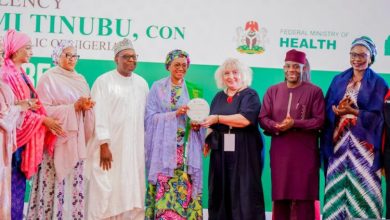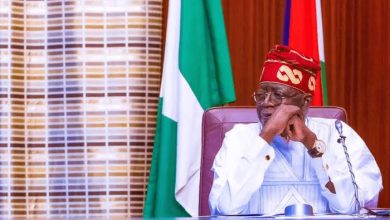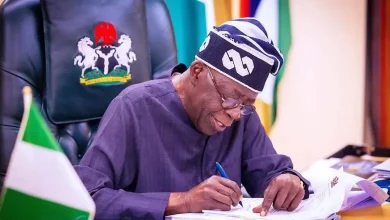INTERVIEW: Inside the world of young Nigerian leading the war to end period
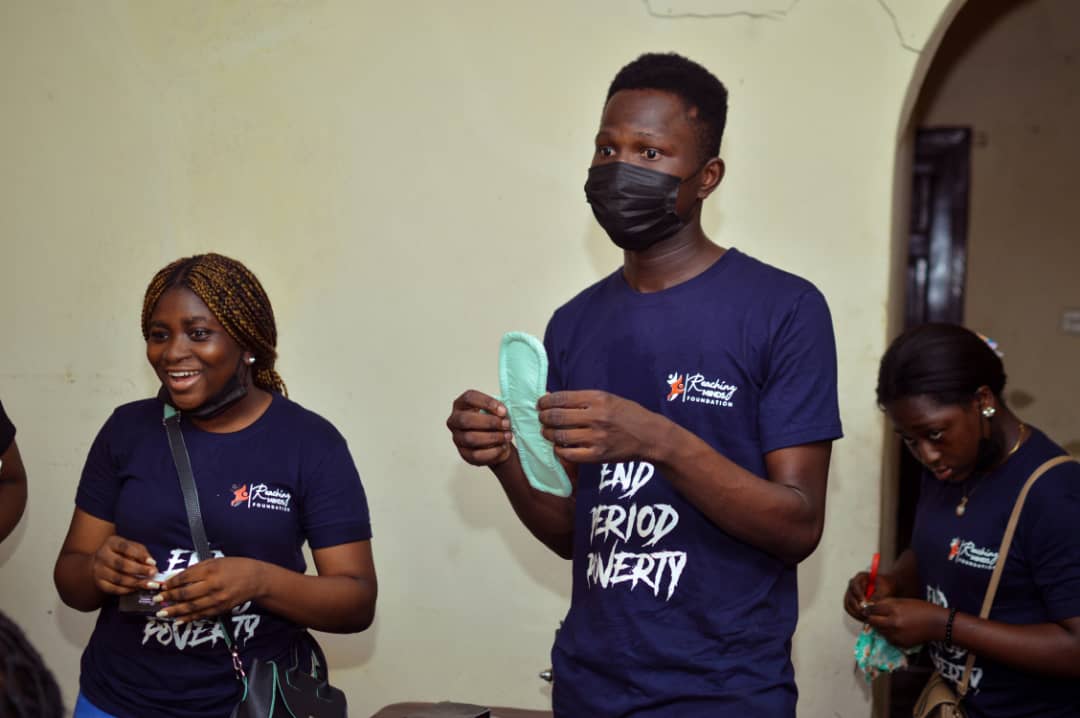
Abass Oyeyemi is the young founder of Reaching Minds Foundation and Halona Media. Reaching Minds Foundation is an organization basically meant tackle issues seen as ‘minor’ in the society.
The foundation has a history of tackling issues like period poverty among young girls, IDPs, and inmates.
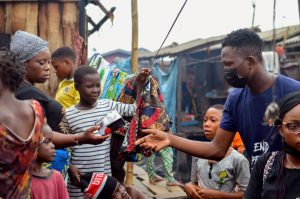
The founder, Mr Oyeyemi earlier also launched “End Period Poverty”.
As the world celebrates menstrual hygiene day, Mr Oyeyemi speaks on his activities towards ending period poverty in Nigeria.
ND: Can we meet you?
Mr Oyeyemi: I’m Abass Oyeyemi, Lead Director of Reaching Minds Foundation. Important to note that I’m from Ayetoro, Ogun State as growing up there has really influenced my decisions and Reaching Minds Foundation
ND: What was the inspiration for Reaching Minds Foundation? Please tell us how it all began
Mr Oyeyemi: Where I grew up is a major determinant of what we wanted Reaching Minds Foundation to achieve. When we first started, we were always going to Ayetoro from Ife to have our projects which was majorly career talks for young kids. Where I schooled too, Obafemi Awolowo University really influenced me.

So there was this thing that we do in Ife where I schooled. During birthdays, we go to orphanages to celebrate with the orphans. You hear crazy stories on how life/government has been unfair to many. To be honest, we are all have-nots, but there’s a better degree of have for some of us and we need to use that to better our society because if we do not see to the betterment of ourselves, we might not see a better society. In 2017, with a team of friends we created Reaching Minds Foundation.
ND: And End Period Poverty?
Mr Oyeyemi: There’s this principle of research in our organization, where we dig for issues that are not given priorities in the society. So, we made a research about menstrual health hygiene in Nigerian prisons and we discovered that little or no attention was given to it.
Hence, we took it upon ourselves to visit all the prisons in Ogun State on October 1, 2019 which was Independence Day. We gave them sanitary materials as a way of promoting healthy menstrual hygiene. After the project, we examined our impact and figured that we still have a long way to go because disposable pads weren’t going to solve the period poverty in the prisons.

We made a case for sustainable solution by putting up researches on how period poverty can be curbed and we resorted to production of reusable pads.
ND: Why the choice of reusable pads?
Mr Oyeyemi: It’s eco-friendly because it’s reusable. As we are promoting healthy menstrual hygiene, we are also protecting the earth. Yes, it’s also durable as it can be used for 18 months to 2 years. Easy to use.
ND: How has the journey been so far?
Mr Oyeyemi: In December 2020, we were able to finalize our test runs for the locally made reusable pads we were producing. In February 2021, we launched it and started training women in IDP camps, slums and prisons how to make them. In the space of two months, we have been able to reach three thousand women.
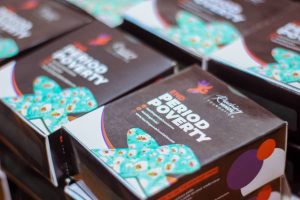
We still have a lot to do. We have to make awareness and make people see menstruation as a topic that could be spoken of in public. We’ve to break the myths surrounding menstruation. We’ve to train more women how to make and use reusable pads.
ND: How did you gather the team at Reaching Minds Foundation?
Mr Oyeyemi: We started as a team of friends, then we started receiving applications of volunteers. Now, we have about 40 volunteers in about 8 states of the country. Now, we are all like a family because when people are guided by the same ideals, nothing can isolate them.
So, I started with Faizah, Faith, Fridause, Zainab. It was a no brainer thing cos they were going to be in my other organizations or anywhere I am trying to pull stuffs. They make stuffs happen. Now, we have Timi, Yuslaw, Khadijah, Bambo, Rosheedah, Tailor Khay, Moyin, Mariam, Fatihat, Babs, Prex forming the other essential part of the make it happen team. Everybody works together, so we have to like each other.
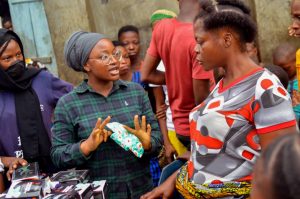
With much support from our patron; Mr. Kayode Adegbola and Partner; Abdulsalam Ajayi, we’ve been putting it straight by walking and acting the path of Period to Period Poverty.
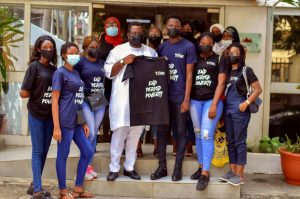
ND: How do you raise funds for your projects?
Mr Oyeyemi: Most times, we raise it internally, our patron, our members and partners. We really don’t go through the process of crowd funding, Nigerians are quite sensitive when it comes to parting away with their money. It has been quite difficult but we’ll get there. We can do more with more money, but we are working with what we have.
ND: What’s the goal for End Period Poverty and Reaching Minds Foundation?
Mr Oyeyemi: On End Period Poverty, we want to train as much women in IDPs, prisons and slums as possible on how to make reusable pads. If the women can start making their own pads we can help them brand it and have other people buy from them. Then, they can have money to sustain themselves and their families.
For Reaching Minds Foundation, we’ve gone to slums and IDPs and we have seen the pathetic situation there, we are looking at making these places as the hub for the next tech bros and sisis in the country. We want to catch them young with our platform – tekisite and train the children between 8 to 18 the basics of software programming. That way, we would widen their exposure and give them something they can use to the betterment of their communities.
ND: How demanding is End Period Poverty compared to your other projects?
Mr Oyeyemi: Quite demanding. To produce just one pad, it takes 10 minutes. In a pack, we’ve three pads, that’s a work of 30 minutes, not calculating the time we spend on packaging. And for each project, we give out a minimum of one thousand packs of pads.
This is coupled with the fact that 95% of people on the team are students. Combining production, outreaches with their academics is really a huge task.
ND: How many communities have you reached?
Mr Oyeyemi: To say period to period poverty, we’ve been to Lagos, Kano, Ogun, Osun, Oyo, Ondo and Ekiti states. We are just starting and we intend to touch at least 19 states this year.
ND: What do you think on the subsidization of pads?
Mr Oyeyemi: I agree that pads are too costly, but with what we’ve seen in the course of our mission, 60% subsidization of pads in Nigeria doesn’t mean that an average woman in Sokoto/Ebonyi states would be able to afford it as the poverty rates there has shown.
Also, looking at it from an environmentalist point of view, we need to start going into reusable materials. Subsidizing disposable pads would only help us weaken the earth.
Lastly, from an economist point of view, we don’t need to be wasting the foreign exchange reserve of the country when we can locally produce reusable pads here. There’s an economic opportunity here for the country to tap into.

